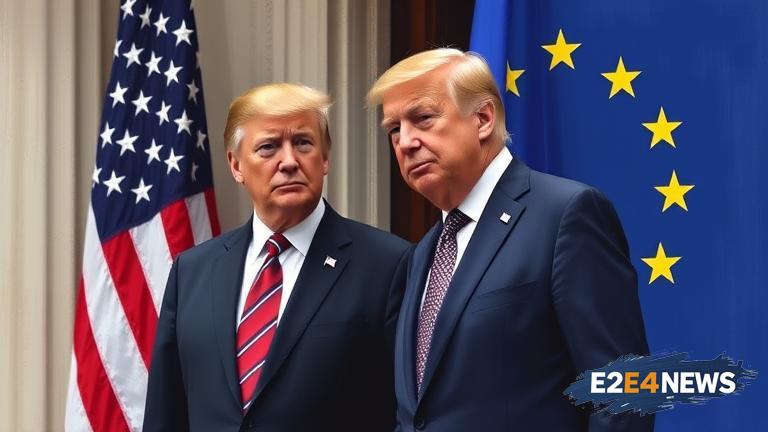The United States is reportedly considering imposing sanctions on European Union officials in response to the bloc’s Digital Services Act (DSA). The DSA, which aims to regulate online platforms and hold them accountable for the content they host, has been a point of contention between the US and EU. The US has expressed concerns that the law unfairly targets American tech companies, such as Google, Facebook, and Amazon. The potential sanctions, which could be imposed by the US Treasury Department, have sparked diplomatic tensions between the two sides. The EU has defended the DSA, saying it is necessary to protect consumers and promote a fair online marketplace. The US, on the other hand, has argued that the law is protectionist and discriminates against American companies. The dispute has raised concerns of a transatlantic trade war, which could have significant economic implications for both sides. The US and EU have a long history of cooperation on trade and economic issues, but the DSA has created a rift between the two. The EU has already begun to implement the DSA, which includes provisions such as mandatory transparency reports and stricter content moderation rules. The US has threatened to retaliate with sanctions, which could include asset freezes and travel bans on EU officials. The EU has warned that such sanctions would be met with a strong response, potentially including retaliatory measures against US companies. The dispute has also sparked concerns about the impact on the global economy, as well as the potential for other countries to follow the EU’s lead in regulating online platforms. The DSA has been hailed as a major step forward in regulating the tech industry, but it has also been criticized for its potential to stifle innovation and free speech. The US has argued that the law is overly broad and could have unintended consequences, such as limiting the ability of companies to operate in the EU. The EU, on the other hand, has said that the law is necessary to protect consumers and promote a fair online marketplace. The dispute has highlighted the challenges of regulating the tech industry, which operates globally but is subject to different laws and regulations in different countries. The US and EU will need to find a way to resolve their differences and avoid a trade war, which could have significant economic implications for both sides. The DSA is just one example of the growing trend of governments seeking to regulate the tech industry, and it is likely that we will see more disputes like this in the future. The US and EU will need to work together to find a solution that balances the need to regulate the tech industry with the need to promote innovation and free speech. The potential sanctions on EU officials have sparked concerns about the impact on the transatlantic relationship, which has been a cornerstone of global stability and security. The US and EU have a long history of cooperation on a range of issues, including trade, security, and climate change. The dispute over the DSA has highlighted the challenges of regulating the tech industry, but it has also underscored the importance of cooperation and dialogue between the US and EU. The two sides will need to find a way to resolve their differences and avoid a trade war, which could have significant economic implications for both sides. The DSA is a major step forward in regulating the tech industry, but it is just one example of the growing trend of governments seeking to regulate the industry. The US and EU will need to work together to find a solution that balances the need to regulate the tech industry with the need to promote innovation and free speech.
